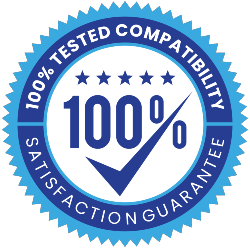In the ever-evolving digital landscape, a website is often the first point of contact between businesses and their audience. If your website is showing signs of age, sluggish performance, or outdated design, it might be time for a transformative change. In this guide, we’ll explore the benefits of rebuilding your old website and the advantages of migrating to the widely acclaimed WordPress platform.
Enhanced User Experience:
An outdated website can deter visitors with slow loading times and a clunky interface. WordPress offers a user-friendly environment with a vast array of customizable themes and plugins, ensuring a seamless and enjoyable user experience.
Mobile Responsiveness:
With the increasing reliance on mobile devices, having a responsive website is crucial. WordPress themes are designed with mobile responsiveness in mind, guaranteeing that your site looks and functions flawlessly on any device.
SEO Friendliness:
Search Engine Optimization (SEO) is paramount for online visibility. WordPress is inherently SEO-friendly, and by optimizing your content and utilizing SEO plugins, you can improve your site’s search engine rankings and attract more organic traffic.
Security Upgrades:
Outdated websites are more susceptible to security vulnerabilities. WordPress regularly releases updates to address security concerns, ensuring that your website remains protected against potential threats. Additionally, plugins like Wordfence and Sucuri can further fortify your site’s security.
Intuitive Content Management:
WordPress simplifies content management, allowing even non-technical users to effortlessly update and add new content. This empowers you to keep your website fresh and engaging without the need for extensive coding knowledge.
Scalability:
Whether you’re a small business or a growing enterprise, WordPress can scale alongside your needs. It accommodates expansion effortlessly, making it an ideal choice for businesses with ambitious growth plans.
Wide Range of Plugins:
WordPress boasts a vast repository of plugins that can enhance your website’s functionality. From SEO tools to e-commerce solutions, there’s a plugin for almost every requirement, streamlining the process of customizing your site.
Community Support:
Being one of the most widely used content management systems, WordPress benefits from a robust and supportive community. This means that you can find solutions to issues, seek advice, and stay updated on the latest trends through forums and online communities.
Backup Your Data:
Before embarking on the migration journey, ensure that you have a comprehensive backup of your existing website. This step is crucial to avoid data loss during the transition.
Select a Theme:
Choose a WordPress theme that aligns with your brand identity and business goals. WordPress offers a multitude of free and premium themes that cater to various industries and design preferences.
Content Migration:
Migrate your existing content to the new WordPress platform. This process involves transferring pages, posts, images, and other media files. WordPress provides tools and plugins to simplify this migration, ensuring a smooth transition.
Testing and Optimization:
Thoroughly test your new WordPress website to identify and rectify any issues. Optimize the performance, check for broken links, and ensure that the design is consistent across different devices.
In the fast-paced digital era, keeping your online presence vibrant and up-to-date is essential. By rebuilding your old website on the WordPress platform, you not only address existing shortcomings but also unlock a world of possibilities for growth, flexibility, and improved user engagement. Embrace the transformation, and watch your revitalized website become a powerful asset in achieving your online objectives.
